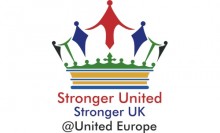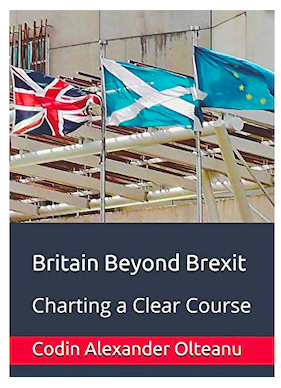The organic connection between the European Union and NATO was put openly on display during the February18, 2016 European Council summit meeting designed to arrive at a final agreement on Prime Minister Cameron's renegotiated terms for UK membership in the EU. Whilst visiting various European capitals in order to persuade his counterparts to support his demands, David Cameron stopped in Warsaw and agreed to deploy an extra thousand British troops in Poland, within the NATO command framework, in order to ensure that Poland and the Baltic states would be able to keep in check any potential Russian aggression towards these NATO member states. The EU negotiations concluded with a unanimous agreement signed on February 20, 2016. Prime Minister Cameron announced not long afterwards that Britain would indeed go ahead with such a troops deployment in Poland.
The sequence of events clearly shows that the two key components of the European Project cannot be easily dissociated and that the weakening of one of these would necessarily lead to a weakening of the other. This should not come as a major surprise since both NATO and the EEC/EU originated in the years following the Second World War with the assistance and material support of the United States. Our trans-Atlantic friends played a key role in stabilizing Western Europe economically, politically, and militarily as it faced the major threat of an aggressive and expansionist Soviet Union whose tank divisions had extended the Stalin empire’s boundaries all the way to Berlin, Vienna, and Trieste.
Despite several attempts of European federalist politicians from the 1950s onwards to create a viable European Defense Structure, or a European Armed Forces, or more recently a European Defense Initiative that would function entirely separately from NATO without any material US involvement, they all have in the end failed to take off or to reach their potential. The stark reality today is that without the active participation of the United States the safety and security of the European Union against external threats ranging from President Putin’s mans to ISIS terrorist networks to cannot be assured or guaranteed.
This fact was recently emphasized by the comments of former NATO Secretary-General Anders Fogh Rasmussen who stated that Britain's influence in NATO would weaken if it left the European Union - and that he personally would “strongly regret” if Britain chose this option in the June 23, 2016 Brexit referendum. Mr. Rasmussen, who left NATO's top job in 2014, went on to state that there was a lot at stake for the Alliance in Britain's membership of the EU:
“You can’t kick the UK out of Nato, but it would be a weakened United Kingdom within Nato because in Nato we need a strong voice of the UK, not least because we need a strong transatlantic link and the UK has always been very strong proponent of that link,” he told the Today programme. If the UK were to leave the European Union, the voice of the UK would be weakened. If you are a member of the EU, you also speak with a more heavy weight when you are speaking about the transatlantic relationship, but if you are outside the EU, that argument would diminish in importance. I would strongly regret if Britain were to leave the European Union. A lot is at stake when it comes to security.”
The current NATO General Secretary, Jens Stoltenberg, has also strongly hinted recently that the Organization needs a strong Britain within the EU, and there is every reason to believe that he shares his predecessor’s reason and analysis.
Finally, Sir Brian Crowe, former Director-General for External and (latter) Politico-Military Affairs in the Council of the European Union, explained in detail the severe defense and security consequences of Britain’s exit from the EU would have for the entire trans-Atlantic community:
We, with the French, founded the EU’s Common Security and Defence Policy at St Malo in 1998. Our formative participation has ensured that, although it has not lived up to its early hopes, it has focused on capability and effectiveness, avoiding chocolate soldiery. Our departure would reverse that and reignite competitive tensions over the respective roles of Nato and the CSDP which we have been instrumental in keeping under control. Post-Brexit, the UK – excluded from European defence policy – can be expected to try and build up a European identity in Nato at the expense of the CSDP; the French and others can be expected to resist this and try and build up the role of CSDP. The Americans, watching from the sidelines, would become even more frustrated and impatient with European failure to agree among themselves…In sum, in a networked world we would lose the advantage that we, with our history, now have of still influential membership in many international groupings. If now we press buttons in any of them, people at least pay attention. Outside one of the most important of these groupings, we would find increasingly that when we pressed buttons, nothing much would happen – certainly in the EU, but in other organisations too.

